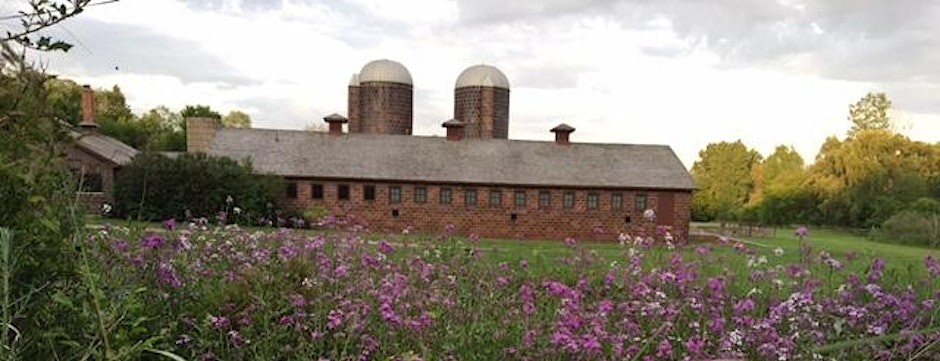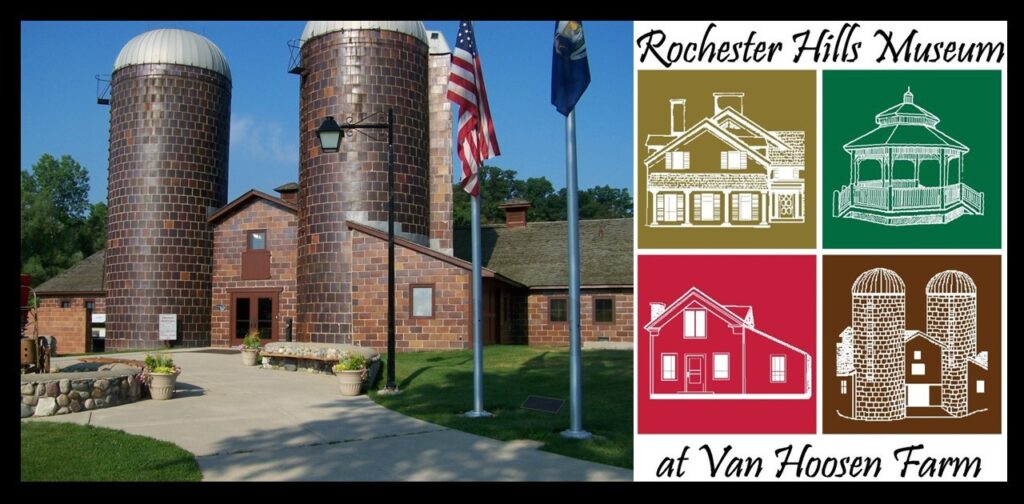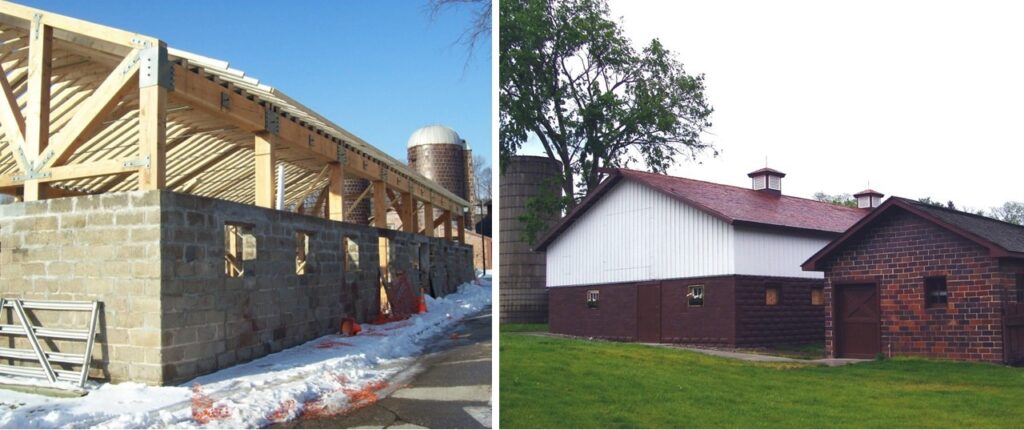Rochester Hills Museum at Van Hoosen Farm

A Model for Adaptive Reuse and Public-Private Partnerships
Intent on preserving a pocket of rural America in a rapidly growing suburban area, the City of Rochester Hills in Oakland County made a commitment to save, reuse and repurpose the Van Hoosen Farm as a local history museum and community space.
The Farm has a storied history dating back to 1823 when Stony Creek Village was settled. The property was passed down through five generations of the Taylor-Van Hoosen family, culminating with Dr. Sarah Van Hoosen Jones (1892-1972), a renowned dairy farmer and cattle breeder with a PHD in animal genetics. Taking over the farm in 1921, she built state-of-the-art dairy and calf barns in 1927 and introduced scientific agricultural management.
Dr. Jones willed the farmstead and surrounding property to Michigan State University. In turn, the University donated the Van Hoosen farmhouse and three acres to Avon Township (now Rochester Hills) in 1979, but sold the rest of the farmstead and acreage to a private developer. Ten years later, the municipality was able to acquire the barns and 13 more acres.

Rochester Hills Museum Manager Patrick McKay initiated a far-sighted plan to preserve the barns and create a museum complex. Corporate funding from local companies, major gifts from long-time generational residents and a grant from the Michigan Department of Natural Resources provided funding for the project.
Today he manages the 16-acre city park that serves as a year-round cultural, educational, and recreational facility.
Watch 1-1/2 minute video about barn preservation at Van Hoosen Farm.
Van Hoosen Barns Saved
Dairy Barn Repurposed

Left: The Van Hoosen Dairy Barn, with its block-glazed walls and silos, is the centerpiece of the 16-acre city park. It houses permanent and temporary exhibits, a museum store and conference room.
Right: The Museum complex includes several barns, a milk house, farmhouse and gardens as well as a nearby pioneer schoolhouse and cemetery. The site is listed on the National Register of Historic Places and attracts 60,000 visitors a year.
Calf Barn Rebuilt

Left: The Calf Barn that came with the City’s purchase in 1989 was in poor condition. Its roof soon collapsed and only the exterior walls remained. It sat vacant for 22 years while facility assessments and fundraising determined its fate. Ultimately, over $790,000 was raised through private donor investment to restore the structure to resemble its original appearance.
Right: The calf barn now supports the museum operation and provides a climate-controlled and ADA accessible venue for community events, including wedding receptions and anniversary parties, art shows, lecture series and a film festival.